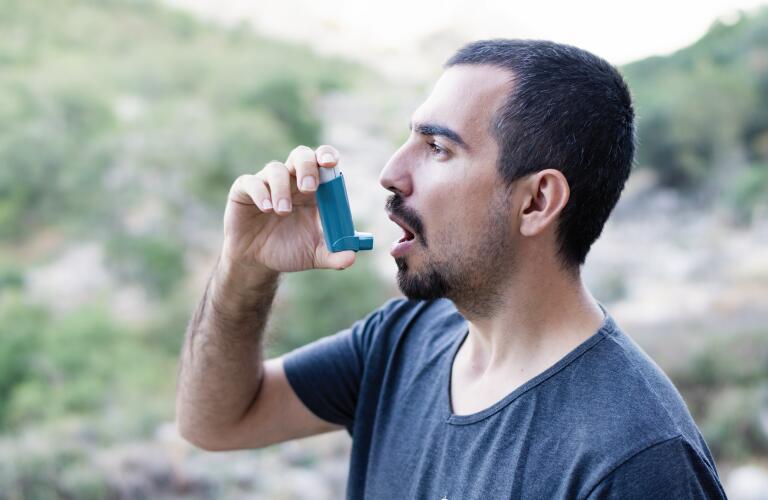
More than 25 million people in the United States are living with asthma; that’s 1 in 13 people. Up to 39% of those with adult-onset asthma have nasal polyps, too. These polyps are noncancerous growths in the lining of the nasal cavity or sinuses that can block airflow and make asthma worse. Since asthma can’t be cured, managing it is critical to relieve symptoms and avoid exacerbations (asthma attacks). Understand how nasal polyps work against good asthma control.
Nasal polyps add more inflammation to asthma.
Nasal polyps aren’t painful, so it may not be obvious that they’re responsible for inflaming your upper airway and making it even harder to breathe with asthma. If you’re experiencing the following symptoms for longer than 10 days, that may be a sign you’ve developed nasal polyps:
- runny or stuffy nose
- headache or face pain
- pain in your upper teeth
- loss of smell or taste
- nosebleeds
Asthma with nasal polyps needs attention.
The medical term for having nasal polyps and asthma is “nasal polyps and comorbid asthma,” or “NPcA.” “Comorbid” means a condition that is happening at the same time as another. NPcA is considered a severe united airway disease. While having asthma puts you at higher risk of developing nasal polyps, up to 45% of those with nasal polyps go on to develop adult-onset asthma. The relationship between nasal polyps and asthma isn’t completely understood, but the association is acknowledged in the scientific community, and research is ongoing.
For some, asthma, nasal polyps, and aspirin don’t mix
Up to 10% of people with asthma also have nasal polyps and an intolerance to aspirin, ibuprofen, or another non-steroidal anti-inflammatory drug (NSAID). This combination goes by many names: ASA triad, Samter’s Triad, and aspirin exacerbated respiratory disease (AERD). It can cause a life-threatening asthma attack, a life-threatening skin rash, or both. Adding the medicine sensitivity to the complicated asthma and nasal polyps equation can also make asthma and nasal polyps harder to treat effectively. Some people benefit from a doctor-prescribed aspirin desensitization process, in which patients are exposed to small doses of aspirin that increase over time until they’re no longer sensitive.
You’re more likely to have the ASA triad if your asthma is severe, you have sinusitis (also referred to as rhinosinusitis), and you’re currently in your 30s or 40s.
How to talk with your doctor about asthma and nasal polyps
When you have asthma, an open and ongoing dialogue with your doctor is vital to controlling it. If you’re concerned about nasal polyps at all, or are experiencing one or more symptoms of nasal polyps, make an appointment. And call 911 if you have any of these emergency-level symptoms of nasal polyps:
- trouble breathing
- vision problems or pronounced swelling around your eyes
- severe headache with a high fever
Many treatments for asthma, nasal polyps, and ASA are available, but their effectiveness depends on an expert assessment of your individual situation and close oversight of your treatment plan. Some biologic therapies, which are derived from living organisms, can treat both asthma and nasal polyps, while other treatment plans may involve a combination of several different medications.











